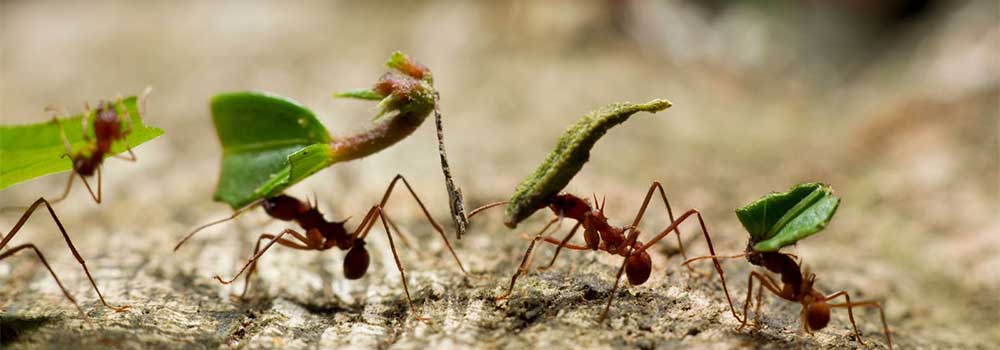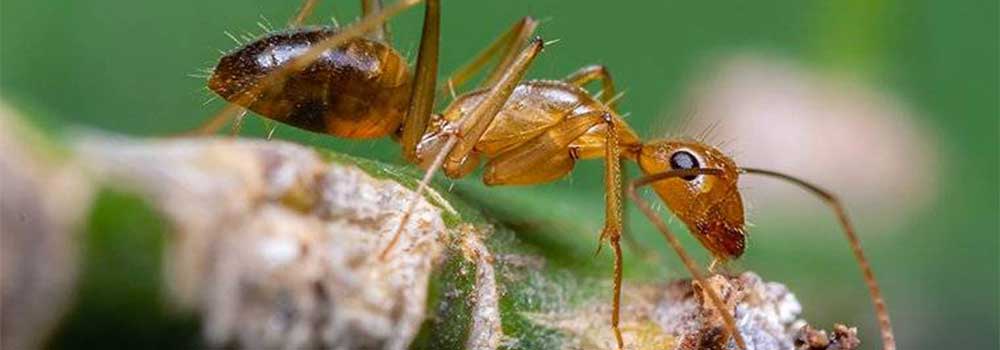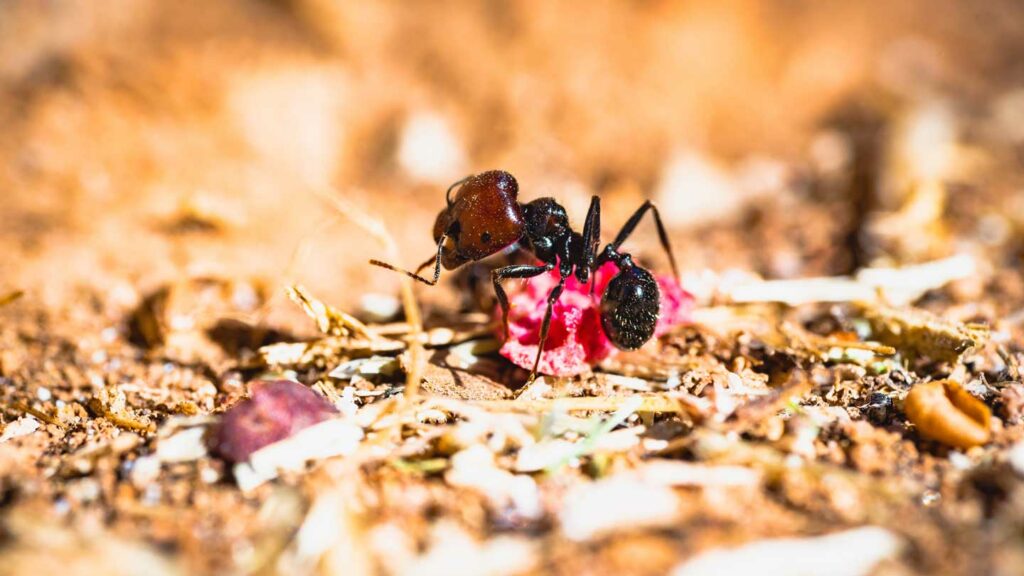In the unpredictable tapestry of a garden, ants, frequently considered pests, use impact. This investigation explores the double idea of these little yet effective animals.
Ants add to soil well-being, yet their uncontrolled presence can upset the sensitive harmony. Understanding their jobs in the garden is principal for developing a flourishing biological system.
This guide digs into the subtleties, unwinding the intricacies and offering solutions to potential issues presented by ant populaces. Therefore, continue reading and learning why ants in garden bed and what its solutions are.
Understanding Ants In The Garden

Ants, frequently excused as pests, assume urgent parts in the garden environment. Their tenacious work contributes significantly to soil air circulation, working with nutrient ingestion for encompassing plants.
The multifaceted elements inside an ant settlement uncover the intricacy of their social construction and correspondence. Recognizing valuable ants from obtrusive species is fundamental.
While some add to the garden’s prosperity, others can disturb the sensitive equilibrium. Perceiving the nuanced jobs these little animals play is central to keeping an agreeable environment.
In the fantastic tapestry of the garden, ants act as nature’s constant specialists. The efficient settlements guarantee productive dissemination of undertakings, featuring the cooperative idea of their reality.
Indications Of Ant Invasion
Indications of ant invasions are unobtrusive yet significant. Noticing sporadic plant development might mean the impact of ants. Trails of these productive bugs become noticeable as they explore their environmental factors, flagging expected issues.
Understanding when these populaces become risky is significant for compelling mediation. The interconnectedness among ants and plant wellbeing couldn’t possibly be more significant.
As ants disturb the dirt construction, they influence the development and essentialness of encompassing plants. Perceiving these signs turns into a guide, demonstrating the sensitive harmony among gainful and unfavorable ant presence in the garden.
Reasons For Ant Presence
Ants are attracted to gardens because of multiple factors, basically directed by their endurance senses. The accessibility of food sources goes about as a magnet, welcoming these innovative bugs to investigate and colonize.
Understanding the many-sided dance among ants and aphids reveals insight into the cooperative connections that impact their presence. Environmental circumstances further add to the fascination of ants with gardens.
Factors, for example, dampness levels and temperature assume vital parts in establishing neighborly environments for ant states. Perceiving these circumstances helps in creating strategies that either deter or oblige ant presence.
The complicated snare of reasons adding to ant presence requires a nuanced approach. From looking for food to making cooperative connections, ants explore the garden space driven by impulse. By interpreting these reasons, gardeners can tailor solutions that address the main drivers of ant colonization.
Effective Solutions For Ant Issues

Alleviating ant issues requires an armory of powerful, eco-accommodating solutions. Friend planting, decisively putting repellent plants, upsets ant scavenging designs.
Sprinkling diatomaceous earth goes about as a natural ant hindrance, making cold circumstances. Keeping up with tidiness in and around the garden kills potential ant attractants.
Custom made solutions, similar to citrus strips and vinegar splashes, act as strong ant repellents. Presenting helpful bugs, for example, ladybugs, supports natural ant control.
Predictable checking and quick activity against ant provinces guarantee a proactive way to deal with garden wellbeing. Coordinating these different strategies shapes an all-encompassing safeguard.
Chemical Alternatives And Their Consequences
While synthetic insect sprays are a choice, their outcomes should be thought of. Adjusting the requirement for guaranteed solutions with the likely mischief to the environment is essential.
Knowing how to get ants out of garden, pesticide use is critical to staying away from long haul adverse consequences. Looking beyond quick solutions, preventive measures guarantee enduring achievement.
Encouraging a decent garden environment and rehearsing practical gardening are essential parts. Carrying out these strategies mitigates the gamble of future ant pervasions.
Conclusion
Coinciding with ants in the garden requires a fair methodology. Perceiving the cooperative dance of ants and executing successful solutions cultivates an amicable environment.
Maintainable practices guarantee a flourishing garden without compromising the sensitive biological system. By embracing natural cures and preventive measures, gardeners can cultivate a space where ants and plants thrive together.
It’s an excursion of understanding, where ants become partners instead of enemies, adding to the dynamic quality and strength of the garden scene.



